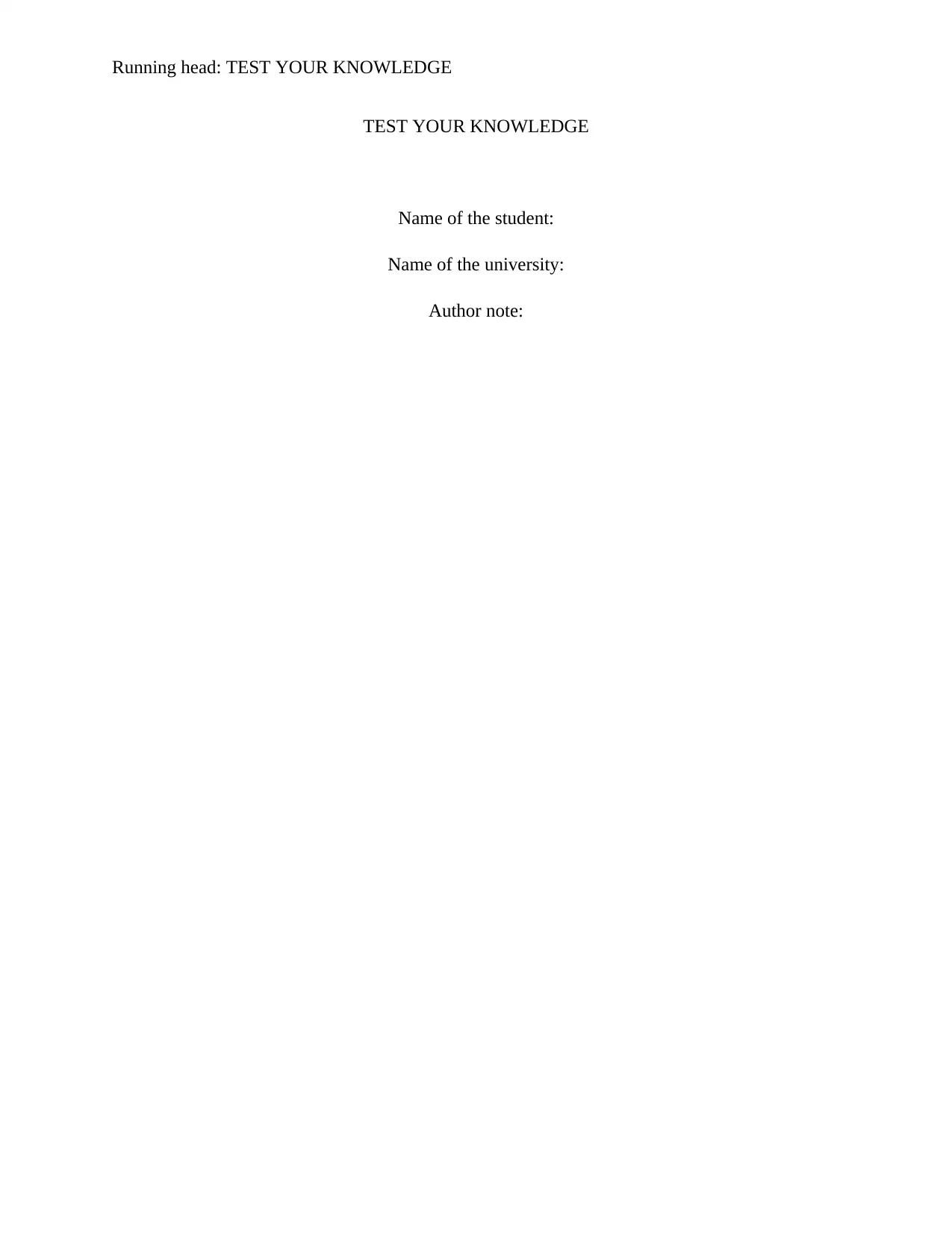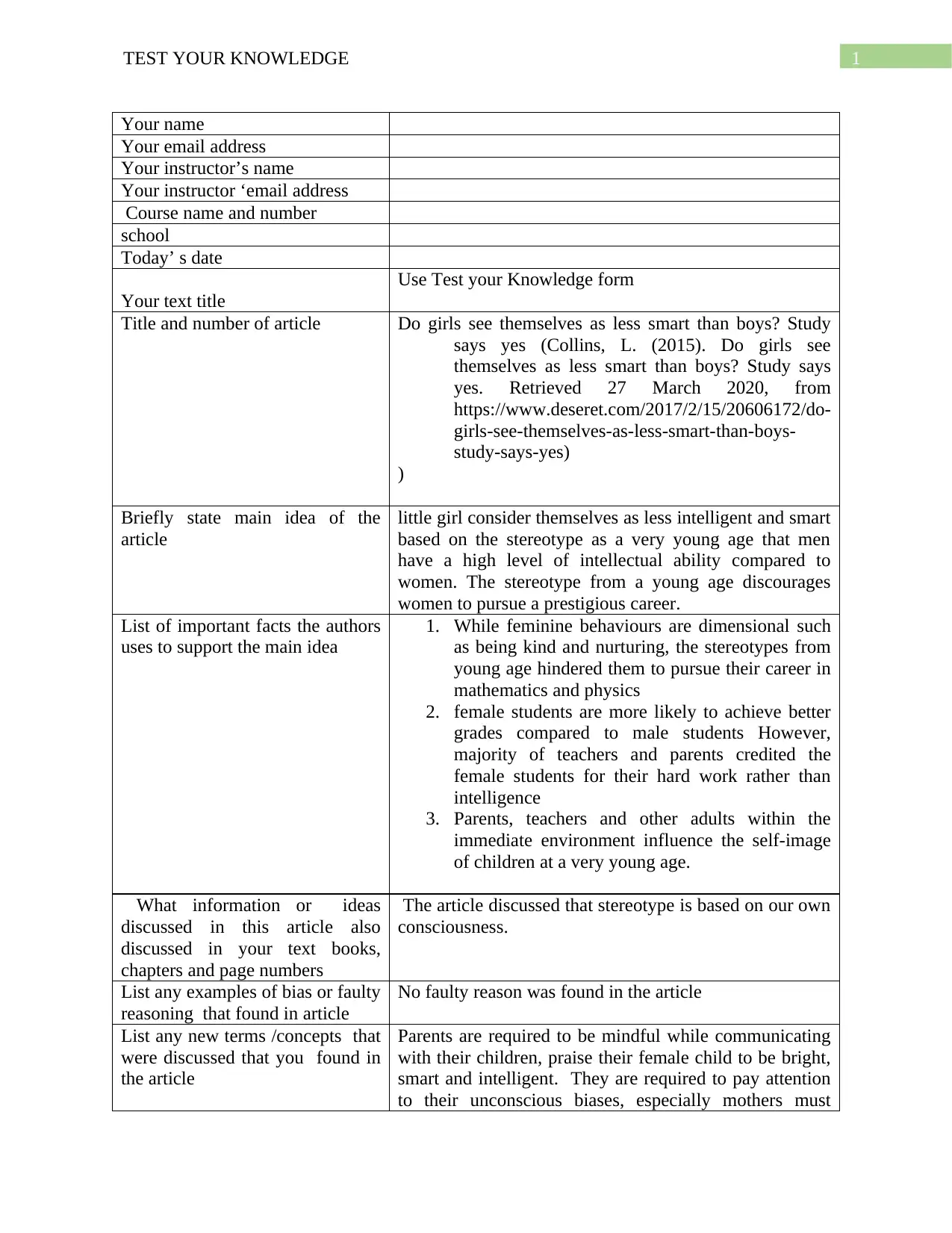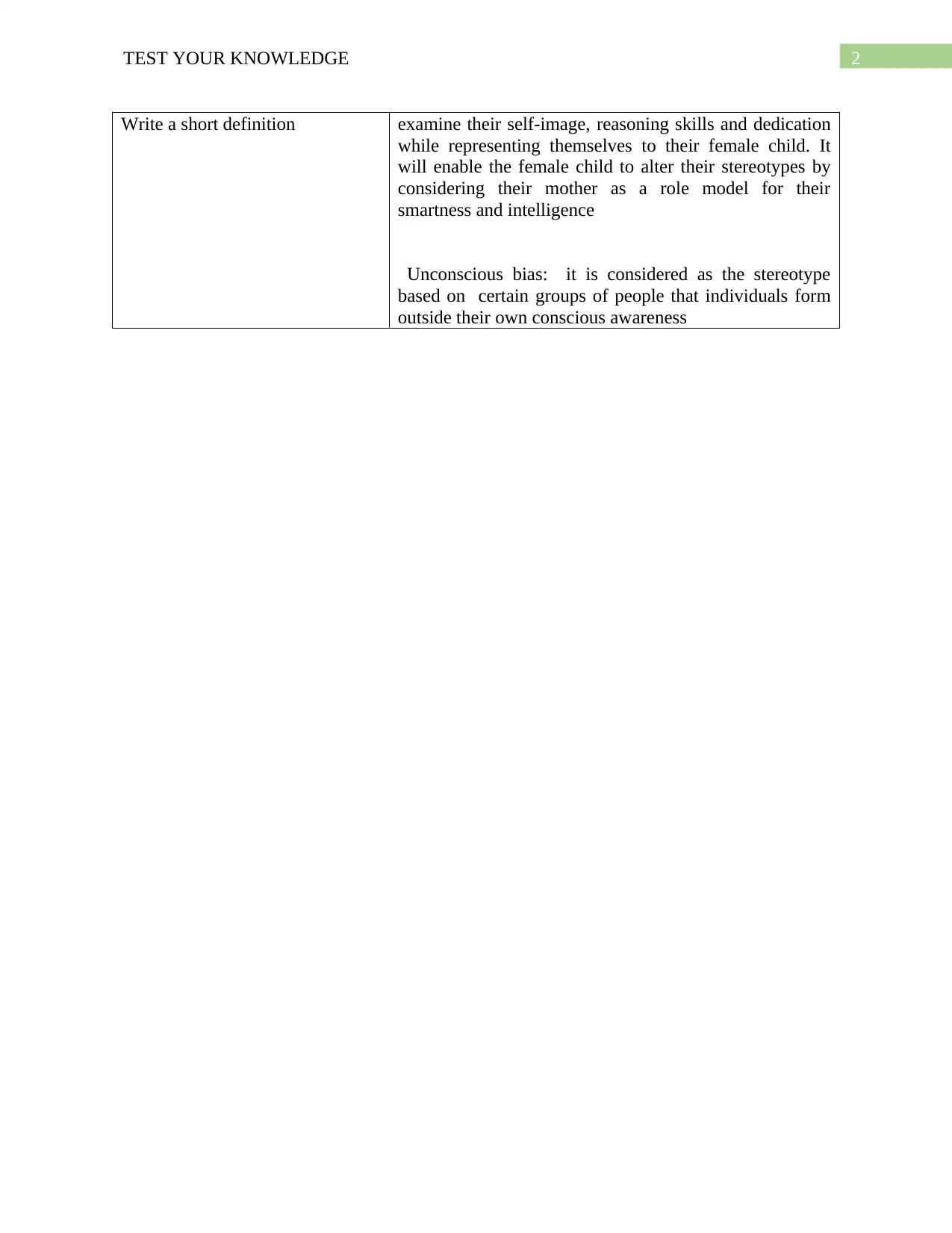Psychology Assignment: Article Analysis of 'Do Girls See Themselves'
VerifiedAdded on 2022/09/02
|4
|457
|16
Homework Assignment
AI Summary
This homework assignment analyzes the article "Do Girls See Themselves as Less Smart than Boys?" which discusses how societal stereotypes, particularly those related to gender, influence the self-perception of intelligence in young girls. The assignment requires a summary of the article's main idea, including the impact of stereotypes and unconscious biases on girls' self-image and career aspirations. It also examines the supporting facts presented by the author, such as the influence of parents, teachers, and the environment on children's self-perception. The assignment prompts the student to identify any related concepts from textbooks, potential biases, and new terms, like "unconscious bias," discussed in the article. The student is also asked to define the term and reflect on how parents can help counter negative stereotypes by being mindful of their own biases and encouraging their daughters. The assignment concludes with a bibliography citing the source article.
1 out of 4






![[object Object]](/_next/static/media/star-bottom.7253800d.svg)